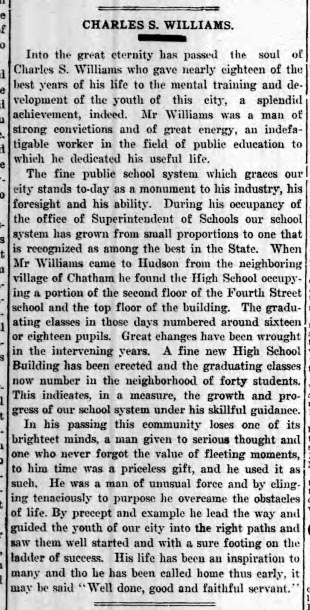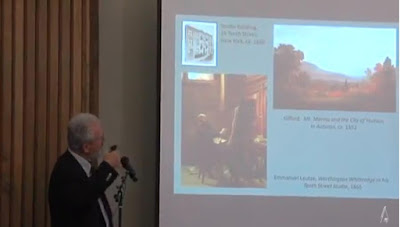For the past decade, a consuming occupation for the Hudson Development Corporation was the Kaz site, which was acquired back in 2010. With the sale of the property set to close any day now and $2 million about to flow into its coffers, HDC is focused on the future and the role it should play in the city's development going forward.
Yesterday's meeting of the HDC board began, as HDC meetings typically do, with comments from board president Bob Rasner. For the first meeting of the year, Rasner riffed on the idea that the Chinese New Year, which begins on February 1, is the Year of the Tiger. Rasner's comments began, "Determined, confident, trustworthy, and frank, the tiger personality is the symbol of power." He proposed three New Year's resolutions for HDC--"resolutions that launch the change from the napping tiger to one that is ready for its role in life":
- Stop relying on good intentions
- Think of the future as a continuous stream of changes, not just a single change
- Quit assuming that we are prepared to succeed
The first steps along the path turned out not to be entirely fun. When the discussion turned to the question of ex officio members (there are two on the HDC board: the mayor and the Common Council president), things got a little heated. In introducing the subject for discussion, Rasner noted that criticism of local development corporations (LDCs) "is frequently around comingling of city officials and the board." He stressed that they were considering "the positions and not the people in them." HDC executive director Branda Maholtz made the point that with "most LDCs, if they have ex officio members, they are non-voting members."
Mayor Kamal Johnson expressed the opinion that to remove ex officio members or make them non-voting members "sets a bad precedent." Returning to Rasner's tiger metaphor, Johnson complained, "You want to take the stripes off our tiger suits."
Later in the discussion, Johnson asserted, "Being blindsided by this is unprofessional." He contended he was the only person of color and the youngest person on the HDC board.
Maholtz reiterated, "The question is not about personalities but about positions." Rasner took issue with Johnson's claim that he was blindsided. "Did you get advanced notice?" he asked Johnson. Johnson answered, "One day." Rasner continued, "You were not blindsided. You were called last week, not one day."
Board member Seth Rogovoy rebuked Rasner for talking to the mayor "like a schoolchild" and "speaking disrespectfully to the mayor." Rasner argued that it was important the situation not be misrepresented. Maholtz confirmed that she had called the mayor last week and he had "fair warning that this discussion was going to happen." Rogovoy urged that the members "speak to each other respectfully" and no one be "talked down to." Johnson claimed the last word, writing in the meeting "Chat": "I will say that my temperament was not high. I expressed my opinion in a respectful manner and was met with disrespect."
It is not clear what the outcome will be regarding ex officio members on the HDC board. There was no consensus on their inclusion on the board and no consensus about their voting. There did, however, seem to be consensus on adding a third ex officio member to the board: the city treasurer.
Questioning the appropriateness of ex officio members on the board is not new for HDC. Up until 2015, there were four ex officio members: the mayor, the Common Council president, the Common Council majority leader and the minority leader. At the end of 2015, when four of the nine members of the HDC board were ex officio, HDC decided to amend its bylaws to reduce the number of ex officio members to two, eliminating the majority leader and the minority leader. At that time, Tiffany Garriga was the majority leader, and the Staley B. Keith Social Justice Center alleged that the board's decision was an attempt to "remove any voices from the minority community." What happened as a consequence was documented by Gossips: "HDC and SBK." History may be repeating itself. COPYRIGHT 2022 CAROLE OSTERINK











































